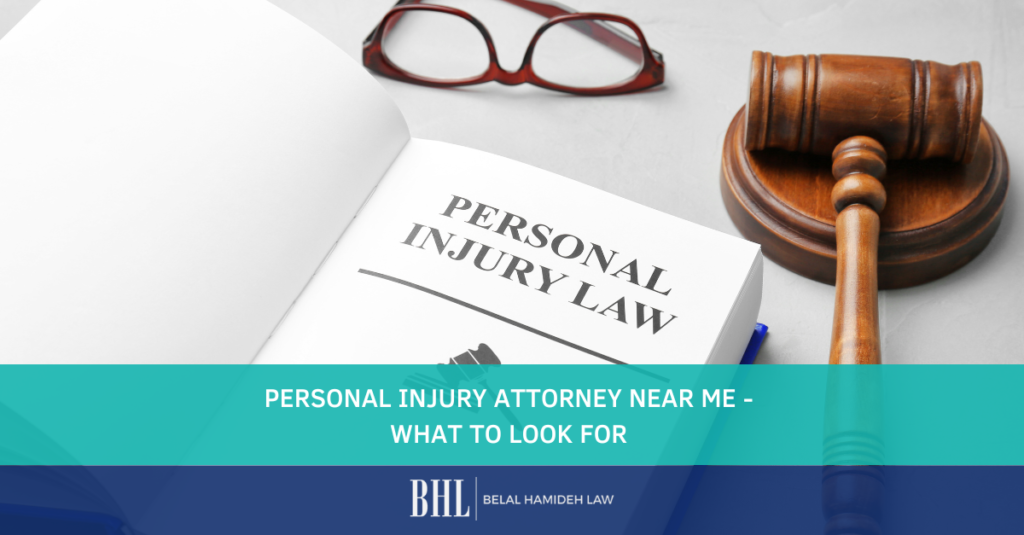Lawyer near me – Finding a lawyer near you can be a crucial step when facing legal challenges. Whether you’re dealing with a personal injury, family matter, or business dispute, having access to qualified legal counsel can make a significant difference in the outcome of your case. This guide will explore the process of finding a lawyer, from understanding your legal needs to navigating online resources and evaluating lawyer profiles.
Navigating the legal system can be daunting, but with careful research and a clear understanding of your options, you can find the right lawyer to advocate for your interests and provide the guidance you need.
The Importance of Location

Finding the right lawyer is essential for anyone facing legal issues. However, it’s not just about finding someone with the right expertise. Location plays a crucial role in ensuring you get the best legal representation.
The proximity of a lawyer to your location can significantly impact the quality of legal services you receive. This is because geographical factors can influence various aspects of legal practice, including accessibility, familiarity with local laws, and the ability to effectively represent your interests in local courts.
Finding a lawyer near you can be a daunting task, especially if you’re unfamiliar with the legal system. However, if you’re considering pursuing a legal career, it might be helpful to check out California State University: A Comprehensive Guide , which provides information about various legal programs offered by CSU campuses.
After you’ve gained the necessary knowledge, you can start searching for a lawyer near you to help you navigate the legal complexities.
Local Laws and Procedures, Lawyer near me
Legal systems and procedures can vary significantly from one jurisdiction to another. A lawyer who practices in your local area will be familiar with the specific laws, rules, and court practices applicable to your case. This knowledge is crucial for effectively navigating the legal system and achieving the best possible outcome.
For instance, a lawyer practicing in New York City will have a different understanding of local real estate laws compared to a lawyer in Los Angeles. Similarly, a lawyer specializing in family law in Texas will be familiar with the state’s specific divorce laws, which may differ from those in other states.
Evaluating Lawyer Profiles

Finding the right lawyer for your legal needs is crucial, and online lawyer directories can be a valuable resource. However, it’s essential to carefully evaluate lawyer profiles to ensure you’re choosing a qualified and reputable professional.
Factors to Consider When Evaluating Lawyer Profiles
To make informed decisions, it’s vital to consider several factors when reviewing lawyer profiles. Here’s a checklist to guide you:
- Experience and Expertise: Look for lawyers with experience in your specific legal area. Check their years of practice, areas of specialization, and notable cases they’ve handled.
- Professional Affiliations and Awards: Look for affiliations with professional organizations, such as the American Bar Association (ABA) or state bar associations. These affiliations indicate a lawyer’s commitment to professional standards and ethical conduct. Additionally, awards and recognitions can reflect their achievements and expertise.
- Client Reviews and Testimonials: Read reviews and testimonials from past clients to gauge their satisfaction with the lawyer’s services. Positive reviews and testimonials can provide valuable insights into a lawyer’s communication skills, responsiveness, and overall client experience.
- Client Fees and Payment Options: Understand the lawyer’s fee structure, including hourly rates, flat fees, or contingency fees. Compare different lawyers’ fees and payment options to find the best fit for your budget.
- Communication and Availability: Look for lawyers who are responsive, communicative, and readily available to answer your questions. A lawyer who is proactive and keeps you informed throughout the legal process is essential for a positive client experience.
- Location and Accessibility: While the importance of location has already been addressed, it’s worth noting that you should consider the lawyer’s physical location, accessibility, and availability for meetings. A lawyer who is conveniently located and readily available for consultations can streamline the legal process.
Identifying Qualified and Reputable Lawyers
While lawyer profiles can provide valuable information, it’s crucial to employ strategies to identify qualified and reputable lawyers. Here are some tips:
- Check Lawyer Credentials and Experience: Verify a lawyer’s credentials by checking their license status with the state bar association. Look for information about their education, years of practice, and areas of expertise. This ensures the lawyer is licensed and qualified to handle your legal matter.
- Look for Professional Affiliations and Awards: Check if the lawyer is a member of professional organizations, such as the ABA or state bar associations. These affiliations indicate a commitment to ethical conduct and professional standards. Additionally, look for awards and recognitions, which can reflect the lawyer’s achievements and expertise.
- Consult with Other Professionals: Reach out to trusted professionals, such as accountants, financial advisors, or other lawyers, for referrals. These professionals may have worked with lawyers in your area and can provide valuable insights and recommendations.
- Read Client Reviews and Testimonials: Explore online platforms and review websites to read client reviews and testimonials. These reviews can provide valuable insights into a lawyer’s communication skills, responsiveness, and overall client experience.
- Ask for Referrals from Friends and Family: Network with your friends, family, and colleagues to see if anyone has worked with a lawyer who specializes in your area of need. Personal referrals can be a valuable source of information and trust.
Legal Fees and Costs
Understanding the financial implications of legal representation is crucial before engaging a lawyer. Lawyers charge fees for their services, and these fees can vary significantly depending on several factors. This section provides information about different fee structures and common legal fees, helping you understand and negotiate legal costs.
Different Fee Structures
Lawyers typically use various fee structures to charge their clients. Understanding these structures can help you compare different lawyers and choose the option that best suits your financial situation.
- Hourly Rate: This is the most common fee structure, where lawyers charge an hourly rate for their time spent on your case. The hourly rate can vary based on the lawyer’s experience, expertise, and location.
- Flat Fee: Some lawyers offer flat fees for specific services, such as drafting a simple will or handling a straightforward traffic ticket. This provides a predictable cost for specific legal tasks.
- Contingency Fee: In certain cases, lawyers may agree to work on a contingency fee basis. This means they only get paid if they win your case, and their fee is a percentage of the settlement or judgment. Contingency fees are common in personal injury cases.
- Retainer Fee: A retainer fee is an upfront payment that secures the lawyer’s services for a specific period. This fee is typically used to cover initial costs and ensures the lawyer’s availability for your case.
Common Legal Fees and Associated Costs
Besides the lawyer’s fees, there are often additional costs associated with legal representation. These costs can include:
- Court Filing Fees: These fees are charged by the court for filing documents and other legal proceedings.
- Deposition Costs: When lawyers take testimony from witnesses outside of court, they may incur deposition costs for transcribing the testimony.
- Expert Witness Fees: If your case requires expert testimony, you may need to pay expert witness fees for their services.
- Travel Expenses: Lawyers may charge for travel expenses if they need to travel for court appearances or other legal proceedings.
- Other Expenses: Other expenses may include photocopying, postage, and other administrative costs.
Understanding and Negotiating Legal Fees
When discussing legal fees with a lawyer, it’s important to ask clear and specific questions to understand their fee structure and associated costs.
- Ask for a detailed breakdown of fees: Request a detailed breakdown of the lawyer’s hourly rate, flat fees, or contingency fee percentage.
- Inquire about additional costs: Ask about any additional costs, such as court filing fees, deposition costs, and travel expenses.
- Negotiate fees: If possible, try to negotiate the lawyer’s fees, especially if you have a limited budget.
- Get everything in writing: Ensure that all agreements regarding fees and costs are documented in writing.
Tip: Before engaging a lawyer, consider obtaining quotes from several lawyers to compare their fees and services. This can help you find a lawyer who fits your budget and legal needs.
Legal Resources and Support

Navigating the legal system can be challenging, especially when you’re facing a complex legal issue. Fortunately, numerous resources and support organizations are available to help individuals understand their legal rights and options. These resources can provide valuable guidance, support, and, in some cases, even free or low-cost legal assistance.
Types of Legal Resources and Support Organizations
Legal resources and support organizations come in various forms, each offering unique services and support.
- Legal Aid Organizations: These non-profit organizations provide free or low-cost legal assistance to low-income individuals and families facing various legal challenges, such as housing disputes, family law matters, and criminal defense. Examples include Legal Aid Society, National Legal Aid & Defender Association, and the American Bar Association’s Free Legal Answers.
- Pro Bono Programs: Many law firms and individual attorneys participate in pro bono programs, offering free legal services to those who cannot afford legal representation. These programs often focus on specific areas of law, such as family law, immigration, or civil rights.
- Legal Clinics: Law schools and community organizations often operate legal clinics, providing free or low-cost legal advice and representation to individuals in specific areas of law. These clinics are staffed by law students under the supervision of experienced attorneys.
- Government Agencies: State and federal government agencies provide various legal resources and services, such as consumer protection, housing assistance, and benefits programs. For example, the U.S. Department of Justice offers resources and assistance related to civil rights, consumer protection, and criminal justice.
- Self-Help Resources: Many organizations provide self-help resources, including online guides, legal forms, and information on legal processes. These resources can help individuals navigate the legal system independently, even without legal representation.
Accessing Legal Aid and Support
Several strategies can be employed to access legal aid and support:
- Contact Local Legal Aid Organizations: Many legal aid organizations have websites or phone numbers where you can learn about their services and eligibility requirements.
- Utilize Online Resources: Websites like Legal Aid Society, National Legal Aid & Defender Association, and the American Bar Association’s Free Legal Answers offer online resources and tools to find legal assistance.
- Check with Local Bar Associations: Local bar associations often have referral programs connecting individuals with attorneys who offer pro bono services or reduced fees.
- Seek Assistance from Community Organizations: Many community organizations, such as faith-based groups, community centers, and social service agencies, may have resources or referrals for legal aid.
Final Summary: Lawyer Near Me
Ultimately, finding the right lawyer near you requires a combination of online research, careful evaluation, and effective communication. By understanding your legal needs, exploring available resources, and establishing a strong client-lawyer relationship, you can confidently navigate the legal process and achieve the best possible outcome for your situation.